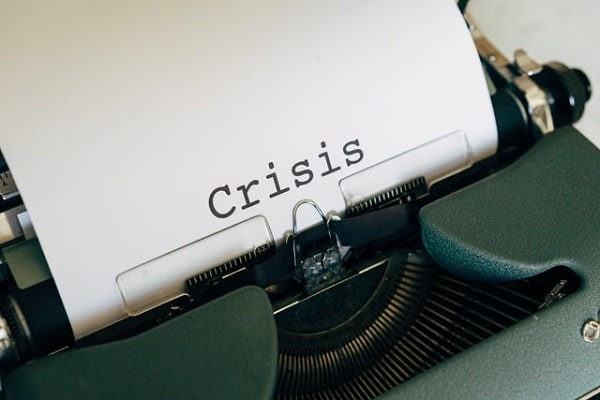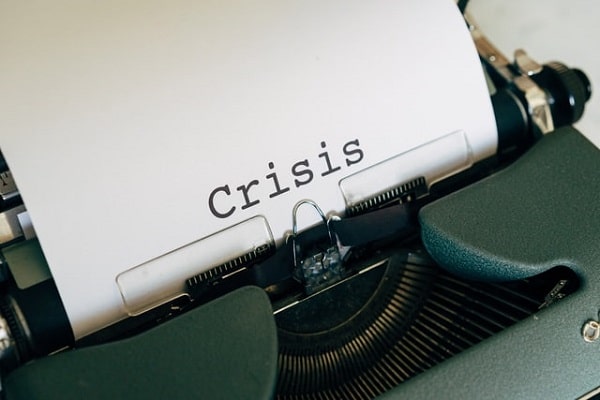In a world of hungry news cycles, publicity crises can be punishing—even fatal to the business that isn’t adequately prepared to handle them. Crisis management is a skill all businesses need to cultivate and master during peace times. To that end, a well-trained HR team can be the difference between a close call, and a true catastrophe.
Here are a few strategies HR teams can implement to be better prepared for any crisis situation.

Photo by Markus Winkler on Unsplash
Protecting Employees
Though the role of HR has shifted to be more comprehensive and strategic over the last several decades, the fact remains that they are still there as advocates for the staff. In times of crisis—be it external, as with Covid-19, or internal, HR managers should still emphasize employee wellness.
This could mean advocating for company policies that alleviate stress, or by handling conflicts amongst staff members as they arise. By keeping things perpetually copacetic, the HR manager protects the interests of their employer, while also benefitting the larger working body.
Cultivate a Sterling Reputation
Of course, it used to be that a business’s human resource department primarily handled hiring employees, and, when the time came, firing them. In the modern workplace, this is far from the case.
Contemporary HR professionals are responsible for molding a business’s culture, and consequently, how said business is perceived by the outside world. They say the best offense is a good defense. It’s also true that the best way to avoid a public crisis is to maintain a sterling public image.
Most people like companies that prioritize employee well-being. Businesses can buy lots of goodwill by empowering their HR staff to cultivate a culture that not only allows staff to survive but thrive.
While a happy staff might not be enough to stave off crisis scenarios, they may be able to validate a business in the eyes of the concerned public.
Have Plans. Lots of Them
Business continuity is the practice of having a plan for any eventuality. When a crisis comes up, businesses will be expected to pivot gracefully into the situation with a solution that is befitting to their standard public image.
Often, it is HR managers who are responsible for handling business continuity plans. By outlining a variety of responses to situations, both likely and unlikely, they help to ensure that the business they work for will be ready for whatever comes their way. HR managers should consider adding emergency fuel services to their business continuity plan to keep the company’s operations running when disasters strike.
Know the Business
HR managers tasked with developing crisis management plans will benefit immensely from an intimate knowledge with the company, by way of its staff.
To be sure, this will involve understanding upper management’s wishes and expectations. However, to really gain actionable intel, HR managers should also acquaint themselves with the front-line workers. What do they do during ordinary times? How will these responsibilities be disrupted by scenario x? Or by scenario y?
Forget About Cause
Crafting crisis response plans is such a daunting task that it can be tempting to try to crystal ball gaze into all possible threats such as storms, recessions, scandals, or leaks. While it certainly will help to have at least a basic understanding of threats that are most likely to occur, there are hazards in getting too bogged down by the details.
For one thing, no matter how thorough a plan is, some situations are sure to escape calculations. Instead of trying to plan for thirty adverse causes, why not plan to respond to a more limited range of effects?
An earthquake, a power outage, and a flood can all disrupt a supply chain. Do businesses really need a specific, detailed plan for each occurrence? Or, would it be more useful to have a comprehensive flexible plan that can be applied to any number of supply disruptions?
Exercise Regularly
Having a plan is one thing, knowing how to best implement it when the heat is on can be an entirely different matter. Even a well-thought-out strategy may not scale perfectly well to real-life pressure. However, businesses can adapt better to any eventuality by having a team on hand that feels as though they’ve been in the trenches before.
Simulations or boardroom exercises can help give a human resource department a clear idea of what possible situations can emerge during a public crisis situation.
For example, an HR manager might simulate a scenario in which the company they work for has suffered a data breach. As all relevant departments run through the continuity plans, they might identify points that play out differently in reality than they do on the page.
Of course, they also simply get valuable practice that will help them pivot immediately into their roles in a moment of crisis.
Simplify, Simplify, Simplify
Life, as Thoreau said, is sweetest close to the bone. So too with a good continuity plan. HR managers and their teams can better prepare for crisis scenarios by making their plans as accessible as possible. If a natural disaster disrupts supply chains, or a bad actor gains access to customer data, no one is going to have the time or bandwidth to leaf through several hundred pages of planning manuals to figure out what they should do.
Media cycles are swift, and the public waits for no plan. By keeping maneuvers brief and to the point, HR managers ensure that everyone is ready to play their part the moment a situation crops up.
Looking For HR Management System?
Call Pursho @ 0731-6725516
Telegram Group One Must Follow :
For Startups: https://t.me/daily_business_reads




